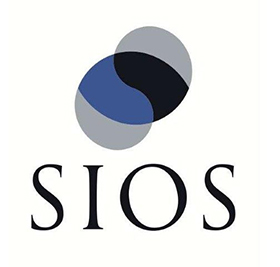
Machine learning and AI will deliver cost savings through greater cloud efficiencies.
Enterprises are looking for application and cloud service providers to help them operate more efficiently through the use of machine learning (ML) and artificial intelligence (AI) to deliver more effective resource management. Achieving this will require the environment or application to understand when it needs more resources. It then automatically scales up those resources to meet the increased demand.
Conversely, the technology will need to understand when specific resources are no longer needed and safely turn them off to minimize costs. Today, such dynamic resource allocation can be unreliable or must employ an inefficient manual process. This forces cloud customers to either spend more than necessary or fall short of meeting service levels during periods of peak demand.
DevOps will transition companies to cloud-native implementations.
Enterprises will seek to take full advantage of the cloud’s agility by re-architecting their application/technology stacks to optimize them specifically for the cloud environment. IT departments regularly use a “lift and shift” approach to migrating applications to the cloud. However, this still requires some changes to ensure meeting desired service levels owing to differences between private and public infrastructures.
The initial wave of migration to the cloud is about optimization. After that, DevOps will drive re-architecting their application/technology stacks to a cloud-native implementation. This allows companies to take further advantage of the cloud’s greater efficiency, reliability, scalability and affordability.
Application vendors will architect HA and DR into their core solutions.
Application vendors will endeavour to deliver greater value and higher reliability. They will achieve this by integrating core high availability (HA) and disaster recovery (DR) features into their solutions. Most applications today require the customer to provide these separately. The majority of organizations do this for all their applications through a general-purpose HA/DR solution.
With HA and/or DR built into an application as a standard feature, customers will be able to simply deploy it on any platform in a private, purely public or hybrid cloud environment. This will be especially beneficial for smaller organizations. They generally lack the expertise or resources needed to implement and operate configurations capable of eliminating all single points of failure. For cloud-native implementations, the application vendor will want to take full advantage of the resiliency afforded by the cloud’s multiple availability zones and regions.
DBaaS and cloud will become the preferred platform for database deployments.
IT organizations have traditionally chosen to implement critical databases and applications in their own datacenters. This allows the staff to retain full control over the environment. Platforms offered by cloud service providers (CSPs) have matured. This means the cloud has become commercially viable for hosting critical applications, as well as Database-as-a-Service (DBaaS).
This viability is true even for complete suites, such as SAP, that span virtually all of an organization’s departments and all of its business functions. This change will put greater focus on reliability, availability and performance of the applications. It also makes the cloud more strategically important to companies. CSPs who deliver greater resilience through availability zones and geographic diversity, will secure long-term engagements with customers.
An increasingly vital role for resellers and system integrators.
The migration of enterprise applications to the cloud is accelerating and maturing. It creates opportunities for resellers and system integrators to ensure mission-critical HA. This window of opportunity is forming as enterprises seek more robust HA solutions that have yet to be fully integrated into the application and system software.
Some system integrators may have the expertise and resources needed to leverage open source software in their Linux offerings. But an increasing percentage will choose to integrate solutions purpose-built to provide HA and disaster recovery protections. These have proven to be more dependable for the customer, while also being just as (if not more) profitable for the integrator.

























